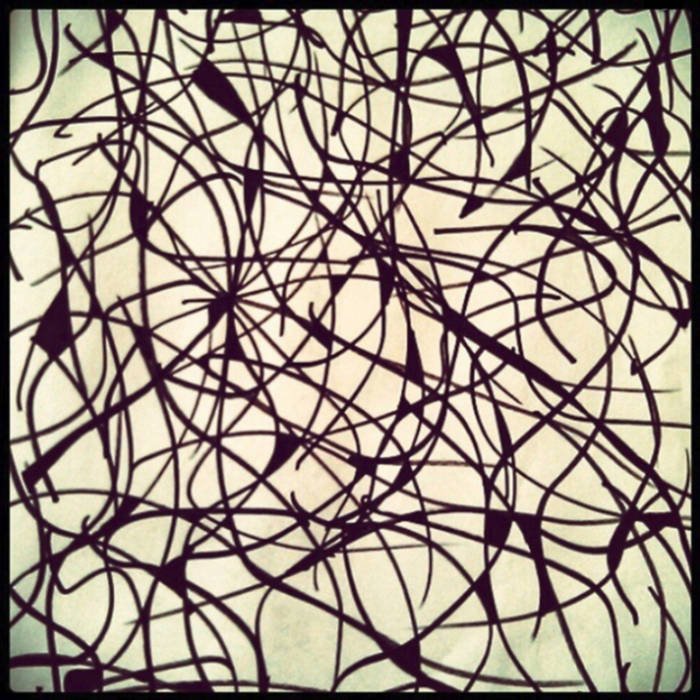by Benji Heywood (@benjiheywood)
A materialist reading of history is always skeptical of the idea that individuals change the world. The idea is that the corresponding material conditions of history – where a person was born and to whom, the political, economic, and cultural structure of a society – all contribute to an individual’s world changing event. Whether it be Truman dropping the bomb or Cobain dropping “Smells Like Teen Spirit,” a materialist would say if it weren’t Kurt and Harry, it woulda been someone else.
I largely agree with this; or at least I did until I learned of the existence of Gareth Liddiard, the Australian virtuoso guitar player and phrase-spitter from Melbourne. “Shark Fin Blues” by Liddiard’s band The Drones re-wired the circuitry of my brain when it came to guitar music. Previously impossible tones and arrangements became possible. Since then, Liddiard’s latest excellent band Tropical Fuck Storm has continued to stretch the boundaries of six strings and an electrical current, most recently with their 2021 album Deep States.
Yet take one listen to “The Names of the Plague” from Liddiard’s recent collaboration with Jim White and Chris Abrahams in a project called Springtime, and suddenly The Drones sound like a run-of-the-mill bar band by comparison. Springtime is experimental, yes – I mean, Christ, Chris Abrahams piano work in The Necks is some of the most beautiful and challenging avant-jazz music you’re likely to come across; oh, and then the drummer Jim White is in Dirty Three. But this is experimental music that’s also unique; a blend of noise-freak outs, improvisation, and jazz-punk, topped with Liddiard’s Marlborough-mouth yarl.
Springtime’s Night Raver EP may only be three songs, but there’s a lot going on: two very disparate longform opuses and one seven-minute improvisation-adjacent rock song. The aforementioned opener, “The Names of the Plague” begins with guitar playing doing its best impression of a cassette tape getting eaten by your car stereo. Abrahams’ entrance on piano provides a confident melodic flourish while White’s drum flurries feel spontaneous and inviting. For the first two or three minutes, the entire band sounds like it’s waking up from a long hibernation. Our gentle awakening changes on a dime, with a cacophonous explosion that spirals into the song proper, the main theme that bounces between raging free-jazz gallops and quitter moments as Liddiard lists the names of the plague (spoiler: the plague sounds serious) in his Muppet growl.
The song’s lengthy improvisational mid-section showcases how chaos can be mesmerizing. The feedback, the Hammond organ, the ringing tom-toms, the paradiddled snare and cymbal trickles – together, it creates a sensation like being in the eye of a harrowing storm; it’s calm, but there’s a sinister danger lurking in the outer dark. When the noise returns, it hits like a cluster bomb. More plague names, more guitar gymnastics, more spazz-out insanity from Abrahams and White. When “The Names of the Plague” finally fades at the fifteen-minute mark, there’s a distinct what the hell just happened vibe, as if you’ve survived a natural disaster but don’t remember how.
Following the mania of “Plague,” “The Radicalization of D” is a quieter affair, with meditative piano playing and lonely reverbed guitar trills. The song itself is one uninterrupted narrative. Liddiard relates the story of D, a troubled boy who spends his time building pipe bombs, getting punched up by his drunk pa, and being a general miscreant. One evening he finds a videotape. The content of the videotape is mysterious, with Liddiard saying simply that the videotape is the first time D hears flute music and the last time he thinks about girls.
While the song pulses through a repetitive riff, the narrative follows D into young adulthood, building to an alarming, emotionally-trying, violent conclusion that I won’t spoil here. It’s an audio novella with the soundtrack of a panic attack. Abrahams’ once-beautiful, gently rolling piano line grows more and more menacing as it repeats. Two chords played with augmented variation, until the tension is so excruciatingly taut, it feels like the whole song is about to snap, like a suspension bridge collapsing into an ocean of blood.
This song is depressing, but it feels real. It’s also a wonderful exposé of an underrated aspect of Liddiard’s art: his lyrics. His performance feels desperate, prophetic – like John the Baptist in the desert preaching a terrible gospel through which we will all know apocalypse. From Liddiard’s vocal delivery to the words themselves, you’re enraptured. When he repeats the penultimate phrase after eighteen minutes, his voice breaks into a defeated falsetto – you’re living in a nightmare you can’t bribe your way out of. It’s a breathless conclusion.
“Penumbra,” the EP’s closer, is the proof-of-concept tune, a live recording from a show in Melbourne. It compiles all the elements of the first two songs into a more manageable listening experience without losing the band’s sharp edges. Atop the frenetic playing of White and Abrahams, Liddiard’s signature garbage disposal guitar tone takes center stage. Imagine “Cortez the Killer” if Young had eight fingers on each hand and Crazy Horse weren’t so gakked out on coke and you’ll have a nifty idea of what Springtime sounds like in full swing.
Springtime is considered a supergroup – and rightfully so. Each of these players is a pillar of their craft, a master at their instrument, but outside of the deeply devoted or the compulsively curious, experimental music’s reach is slight and to say experimental music on the order of Springtime’s will ever “change the world” is massively hyperbolic. Yet, one can argue, as we look out our window at a world pigfucked by profit-pirates and oil-garchs, war-mongers and poverty-ticks that the material conditions are in place. The plague isn’t coming for you. It’s already here. Don’t say Liddiard didn’t warn you.

